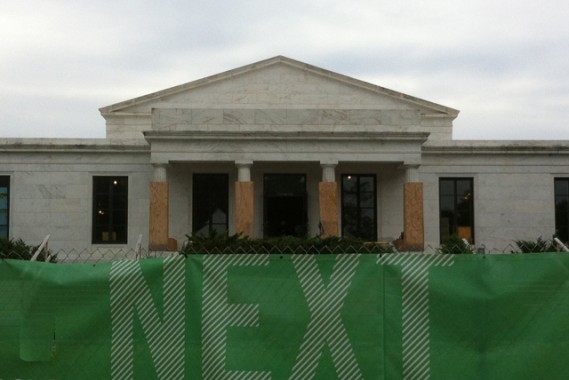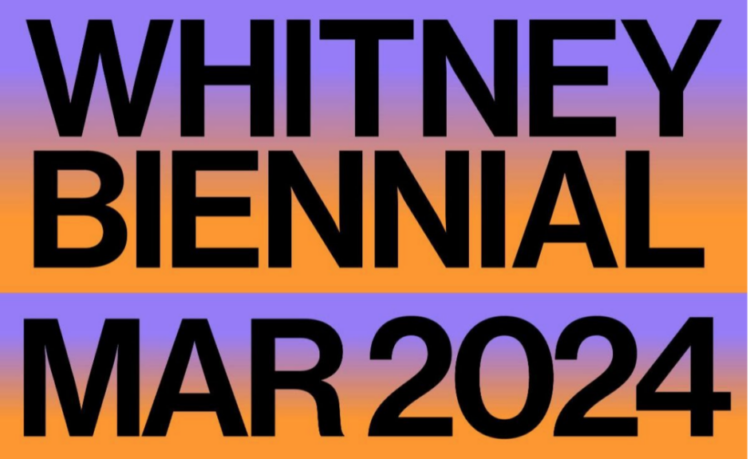Creative Capital Artist Retreat featured on Hyperallergic
 On July 27, Hyperallergic’s Thomas Micchelli shared a wonderfully thoughtful and descriptive account of the artist presentations at Creative Capital’s 2013 Artist Retreat. An excerpt follows, and you can read the full article on hyperallergic.com.
On July 27, Hyperallergic’s Thomas Micchelli shared a wonderfully thoughtful and descriptive account of the artist presentations at Creative Capital’s 2013 Artist Retreat. An excerpt follows, and you can read the full article on hyperallergic.com.
“One of Creative Capital’s methods of building a community is its annual retreat, where new grantees introduce their projects in seven-minute presentations, and prior awardees are given five minutes to offer progress reports. The general idea is to redefine artistic practice from an isolated and often solitary endeavor to a thriving, entrepreneurial engagement with real-world issues and the public at large.
The dozens upon dozens of projects funded by the organization are often, though not entirely, long on social action, research and interdisciplinary practice.
That is not to say they skimp on the emotions or imagination—the most intriguing often arise from an inspired, transformational leap—but many cross so far into activism that their status as art might legitimately be called into question. That is, if that kind of thing matters to you.
I don’t mean to dismiss the distinction between art and non-art. While the idea that the artist decides what is art has been with us for a century, I must cop to a feeling of unease about the broad use of relational aesthetics in the funded projects.
My problem was that it seemed harder to prove that a particular piece, such as a plan to plant fruit trees in an urban neighborhood (by a team calling itself Fallen Fruit), was not art than to convincingly argue that it was. But then I began to wonder if my misgivings had more to do with geography than aesthetics.
The projects are broadly based, coming as much from the West, Midwest and South as from the East Coast and the New York metro area in particular. And it is somewhat jarring to realize that much of what we recognize in New York as relational or social aesthetics is presented more often than not in a museum or gallery setting, and almost always indoors.
We are not acclimated to embarking a shrimp boat to reconnect with the coastline, as Eric Leshinsky and Zach Moser are doing on Galveston Bay, or in reclaiming an urban forest through the creation of a bee sanctuary, as Juan William Chávez is attempting on the site of the notorious Pruitt-Igoe housing project in St. Louis.
While some of these projects are more persuasive than others, what we should be questioning is not their presumed overreach but how reflexive we have become in our equation of art and commodity.
In this regard, the Creative Capital retreat, playing out on the campus of Williams College, Williamstown, Massachusetts, and at the Sterling and Francine Clark Art Institute, where the projects are presented, has showcased a number of concepts—some funded by the organization and others that were discussed by way of context—that are making a real difference in terms of civic engagement.
Among the most significant is the work of Laurie Jo Reynolds, who spearheaded the campaign to close Illinois’ inhumane Tamms ‘supermax’ prison, where prisoners were kept in continuous solitary confinement. Another project dealing with the prison system is Gregory Sale’s Sleepover, which addresses issues of convicts reentering society—a difficult proposition under any circumstances, let alone in Maricopa County, Arizona, the stomping ground of the controversial sheriff, Joe Arpaio.
The multidisciplinary artist, composer and cellist Paul Rucker draws parallels between American slavery and the contemporary prison system—a history that includes the evolution of plantations to prisons in places like the infamous Louisiana State Penitentiary, also known as Angola—in the installation Recapitulation, which encompasses animation, digital images, sculpture, music and interactive sound and video.”
Many, many more artist projects are detailed in the full story on hyperallergic.org. Thank you, Thomas, for being there with us!
